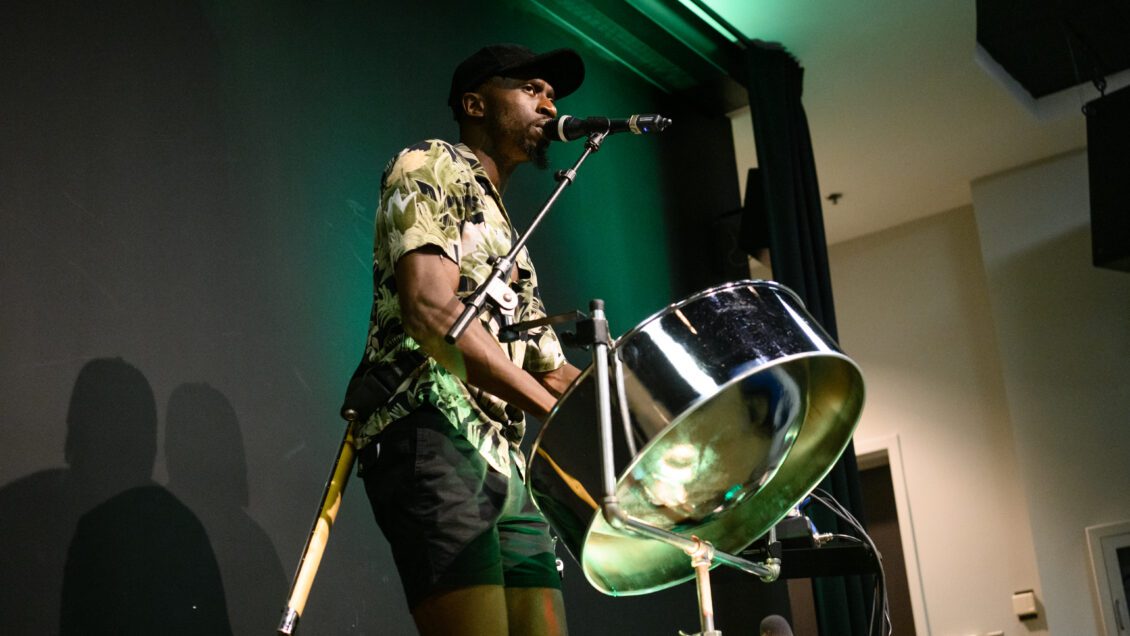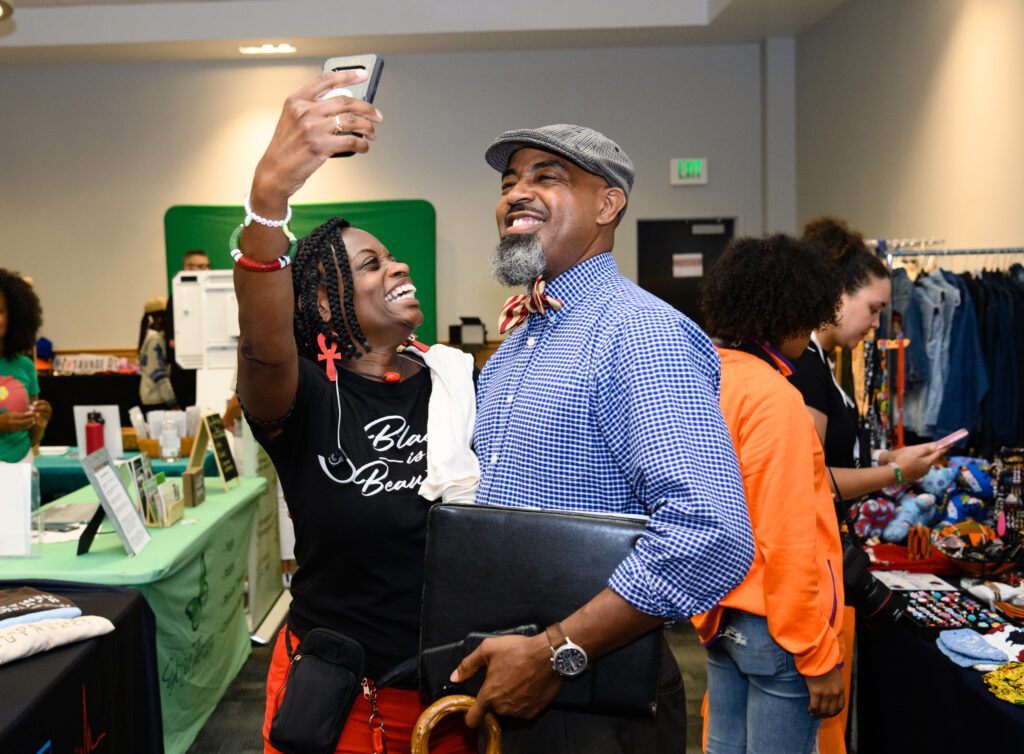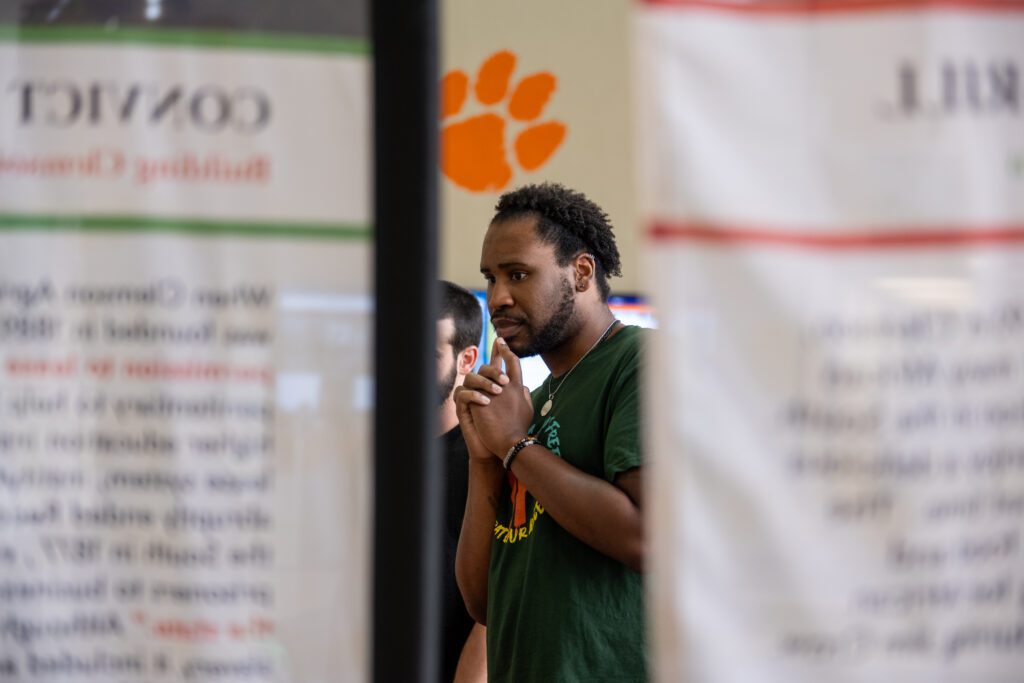
Dozens of organizations and hundreds of attendees participated in the Juneteenth events on Clemson’s campus, which were moved indoors because of weather Monday. The rain didn’t dampen the enthusiasm of the volunteers or visitors, though. Music, spoken word performances and vendors shared the day with nonprofit organizations, artists, and historical and cultural groups representing Anderson, Oconee and Pickens counties.
“The Juneteenth Festival offered a wonderful opportunity for members of the Clemson University and local communities to come together and celebrate the end of slavery in America and to learn more about African American history and culture, including some local residents who came to campus for the first time,” said Rhondda Robinson Thomas, the Calhoun Lemon Professor of Literature and Faculty Director of Call My Name. “We are especially grateful to the variety of performers, vendors, non-profit organizations, authors and food trucks along with the storyteller, balloon artist and face painter who greatly enriched the event. I hope that each year Clemson University will pause to celebrate the federal holiday that some call America’s second Independence Day.”

This year marked the first that the festival has been held on Clemson’s campus, after several years of being hosted in separate, city-run celebrations in the cities of Clemson and Seneca. Attendees who had attended past community events remarked on the size and the broad attendance of the on-campus event. Faculty and staff, along with campers from various University programs, and community members were among those who attended.
Clemson Rural Health, the NAACP, the Pickens County Library System, and a variety of nonprofits working to preserve and restore historical facilities were among those who hosted tables in the vendor and organization area. Steel drum performances, face painting and storytelling for kids, a photo booth along with book signings were included in the activities, as well.

Poet, musician, and youth advocate Dove Dupree joined a full slate of artists performing at Hendrix Student Center’s McKissick Theater. Dupree shared encouraging words of justice and healing with a receptive crowd, repeating the mantra “poetry saves lives.”
“I believe that we can accomplish things together, hence the amount of people in this room,” he said during his performance. “All of us don’t look exactly the same, but I believe in that dream Dr. Martin Luther King had.”
Juneteenth commemorates the end of slavery in America, and it became a federal holiday in 2021. The on-campus event celebrated the people, places and programs that make Clemson and its surrounding communities historically, culturally and artistically unique.
“We have seen so many students come through the doors today, and they are signing up to receive more information about Call My Name,” said Deborah Robinson, Woodland Cemetery’s genealogist and part of the Call My Name coalition. The group is researching and documenting the African American experience in Anderson, Oconee and Pickens counties, acknowledging the contributions, and honoring the legacy of seven generations of people of African descent in the University’s history.
“It’s always good to have the young people involved,” Robinson said. “This is an excellent turnout and they’re wanting to learn about our projects.”
The Juneteenth celebration also included a local Black history exhibit at the R.M. Cooper Library and a virtual tour of Woodland Cemetery and the African American Burial Ground, led by Marquise Drayton, the Cemetery’s Community Engagement Assistant. While Woodland Cemetery is closed for upgrades, Drayton and the project team are exploring new avenues for outreach and engagement.
“We’re working on programming that creates an inviting space for the local community to see where Clemson history lives,” Drayton said. “It’s very important to keep in mind that this is a holistic story.”
Co-sponsors of the event included the cities of Clemson and Seneca, the Call My Name Coalition/Black Heritage Trail, Woodland Cemetery African American Burial Ground Project and Clemson University Libraries.

“I’ve loved to see so many of our youth involved today,” said Clemson mayor Robert Halfacre. “It’s great to see so many organizations and volunteers be a part of this. It’s also so encouraging to see our city and our campus communities join together for such a successful event, especially one that celebrates our resiliency and honors the contributions and sacrifices that brought about freedom.”
Get in touch and we will connect you with the author or another expert.
Or email us at news@clemson.edu
